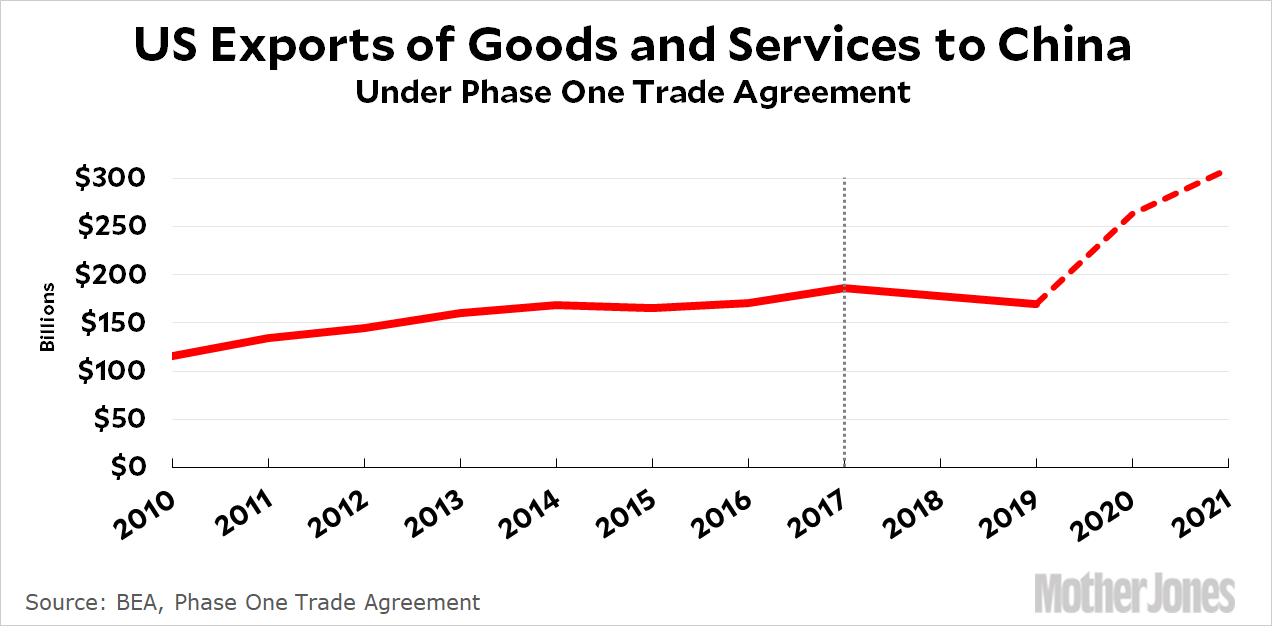Oh look, a new trade agreement:
President Trump on Wednesday signed a partial trade deal with China, securing a promise that Beijing will purchase specific amounts of U.S. goods and services while retaining many of the import penalties he put in place over the past two years.
The text of the agreement is finally available, and it looks legit. It says China “shall ensure” that it purchases an additional $200 billion of American goods and services in 2020 and 2021 compared to the “2017 baseline.” That baseline doesn’t seem to be spelled out anywhere, which is probably because US and Chinese estimates of trade goods are sometimes quite different. Still, that’s only a little bit of wiggle room. If the Chinese follow through, US exports to China will look like this:

I was skeptical that this trade deal contained clear wording about Chinese purchase commitments, but unless I’m missing something it seems to.


















